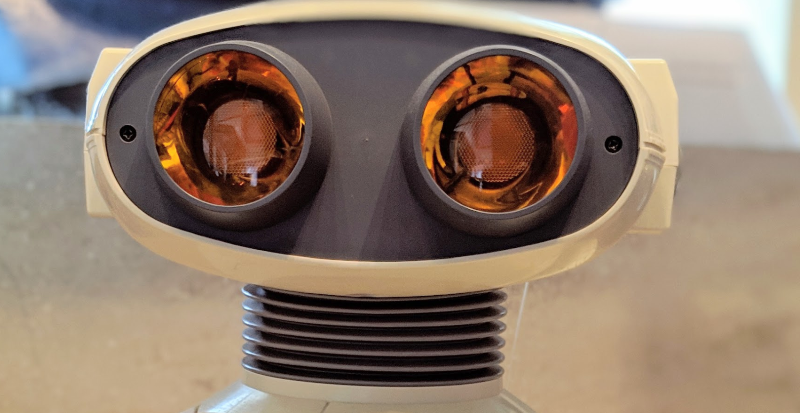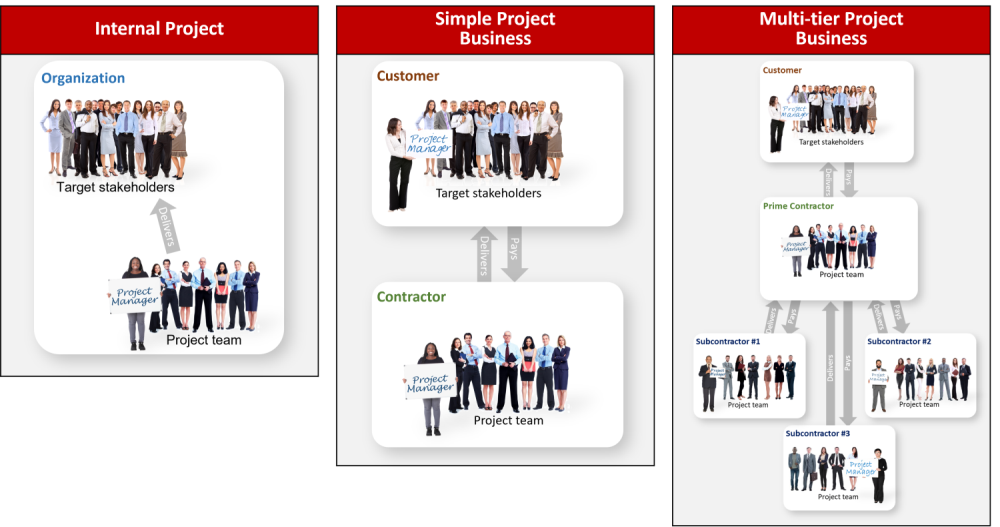Can They Get Along?
Project Business Management
SERIES ARTICLE
By Oliver F. Lehmann
Munich, Germany
“For the natural, the universe is hardly vast enough;
what is artificial requires closed space.”
J. W. v. Goethe, Faust II

Summary
Artificial Intelligence (A.I.) is about to revolutionize the management of Project Business. However, the gains in efficiency and productivity come with risks in form of pipe-dreaming, pollution, and poisoning. The solution is supervising the systems and syndicating their outputs.
What is Project Business?
Project Business takes place when two or more organizations do a project together as customers and contractors. In Project Business, the project is no longer solely there to support a business. It is the business.

Figure 1: In contrast to internal projects, where the target stakeholders of the project and its performing team are located in the same organization, Project Business is cross-corporate with two or more—often many more—organizations involved.
Project Business is different from internal, cross-functional projects. In a simple scenario, there may be just two organizations involved: A customer and a contractor. In mega-projects, such as big infrastructure, aerospace and defense programs, or even Olympic games, there may be hundreds of organizations working together towards a common goal. Typically, these organizations build complex and dynamic multi-tier project supply networks, and for most of them, the project is not a cost center; it is a customer project—a profit center. It must bring money home and safeguard the organization’s credit line.
Many companies rely on project business as their sole source of income. As contractors, they sell project services and products against payment. Others include customer projects as a component in their proposition packages: They sell hardware, software, or ongoing services, and the project to implement these on the customer side is part of their success formula for the paying customer.
The high art of Project Business is forging the different organizations together and making them follow a common mission: The successful completion of the project. Ideally, contract parties become project partners teaming up for the benefit of each of them and for the smile on everyone’s face when they have achieved a desired and distinguished result together, a result that one organization alone could not have achieved.
In real life, this art is rarely found. Project Business is too often burdened with incompatible business interests, poor communications, quarreling, and finger-pointing:
More…
To read entire article, click here
Editor’s note: This series of articles is by Oliver Lehmann, author of the book “Project Business Management” (ISBN 9781138197503), published by Auerbach / Taylor & Francis in 2018. See author profile below.
How to cite this article: Lehmann, O. (2024). Project Business, Artificial Intelligence, and Ethics – Can They Get Along? PM World Journal, Vol. XIII, Issue I (January). Available online at https://pmworldlibrary.net/wp-content/uploads/2024/01/pmwj137-Jan2024-Lehmann-AI-in-Project-Business-Management-2.pdf
About the Author

Oliver F. Lehmann
Munich, Germany
![]()
Oliver F. Lehmann, MSc, ACE, PMP, is a project management educator, author, consultant, and speaker. In addition, he is the owner of the website Project Business Foundation, a non-profit initiative for professionals and organizations involved in cross-corporate project business.
He studied Linguistics, Literature, and History at the University of Stuttgart and Project Management at the University of Liverpool, UK, where he holds a Master of Science Degree (with Merit). Oliver has trained thousands of project managers in Europe, the USA, and Asia in methodological project management, focusing on certification preparation. In addition, he is a visiting lecturer at the Technical University of Munich.
He has been a member and volunteer at PMI, the Project Management Institute, since 1998 and served as the President of the PMI Southern Germany Chapter from 2013 to 2018. Between 2004 and 2006, he contributed to PMI’s PM Network magazine, for which he provided a monthly editorial on page 1 called “Launch,” analyzing troubled projects around the world.
Oliver believes in three driving forces for personal improvement in project management: formal learning, experience, and observations. He resides in Munich, Bavaria, Germany, and can be contacted at oliver@oliverlehmann.com.
Oliver Lehmann is the author of the books:
- “Situational Project Management: The Dynamics of Success and Failure” (ISBN 9781498722612), published by Auerbach / Taylor & Francis in 2016
- “Project Business Management” (ISBN 9781138197503), published by Auerbach / Taylor & Francis in 2018.
His previous articles and papers for PM World Journal can be found here:









